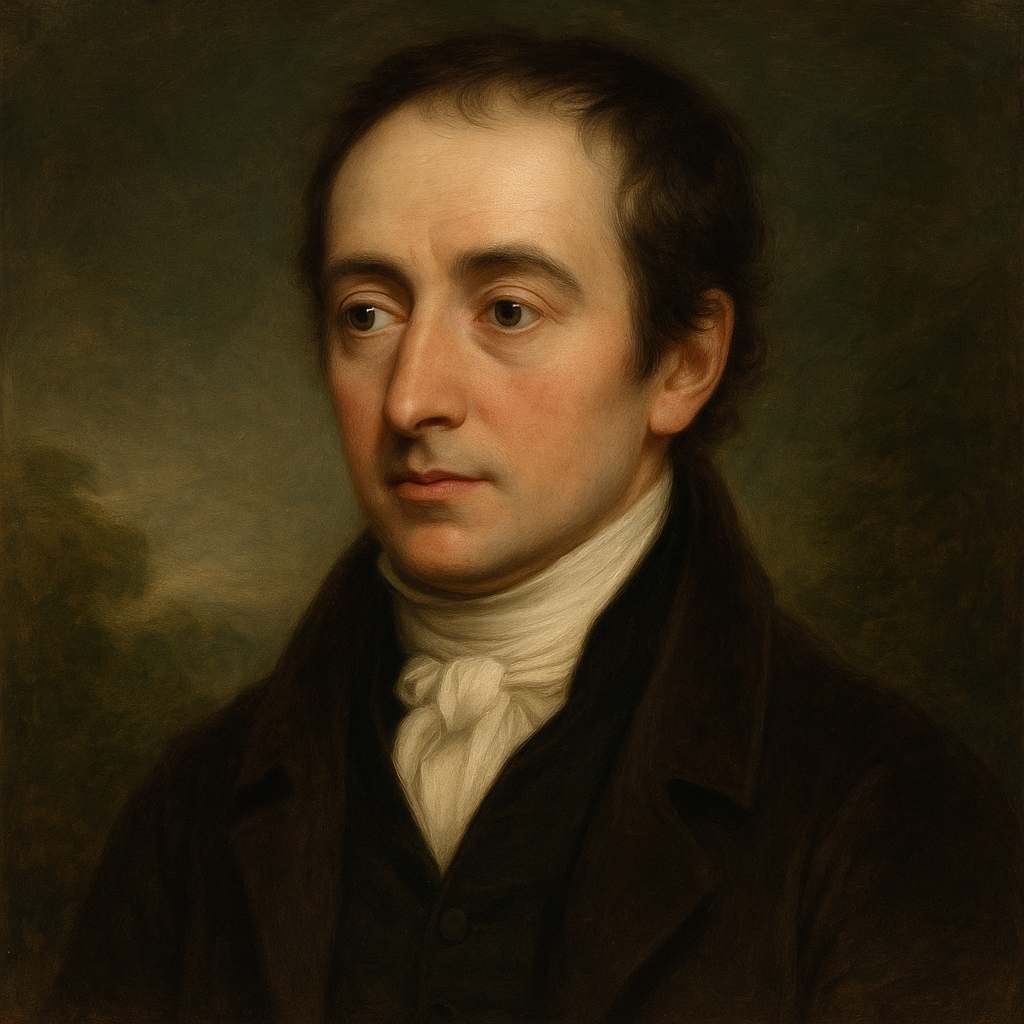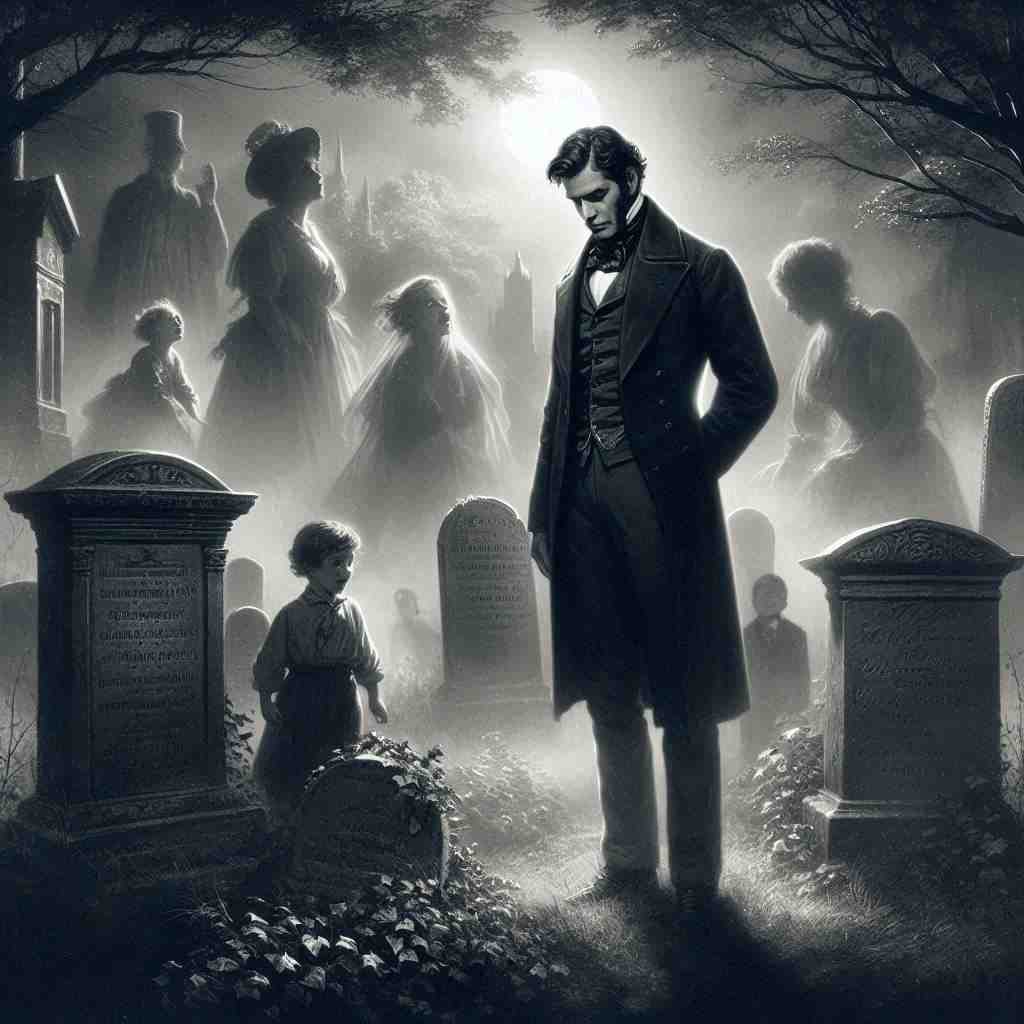4 Poems by Charles Lamb
1775 - 1834
Charles Lamb Biography
Charles Lamb, born on February 10, 1775, in London, England, was a singular figure in English literature, known for his essays, criticism, and poetry that bridged the Romantic and Victorian eras. The son of John Lamb, a lawyer's clerk, and Elizabeth Field, Charles grew up in the Inner Temple, an environment that would profoundly influence his later writings. This urban upbringing, steeped in the history and atmosphere of London, set him apart from his more nature-oriented Romantic contemporaries.
Lamb's formal education began at Christ's Hospital, a charity school where he formed a lifelong friendship with Samuel Taylor Coleridge. This relationship would prove instrumental in shaping Lamb's literary career and intellectual development. Despite showing promise as a scholar, particularly in classical studies, Lamb's education was cut short due to his speech impediment, which precluded him from a university education and a potential career in the church.
At the age of fourteen, Lamb entered the working world, first as a clerk at the South Sea House and later at the East India Company, where he would remain for 33 years. This steady employment provided financial stability but also fueled a tension between his artistic aspirations and the demands of his clerical work, a conflict that would become a recurring theme in his essays.
The most defining event of Lamb's life occurred in 1796 when his sister Mary, in a fit of mental illness, fatally stabbed their mother. This tragedy bound the siblings together for life, with Charles becoming Mary's caretaker during her periodic bouts of insanity. This arrangement, while limiting Lamb's personal freedom, also fostered a unique literary partnership. The siblings collaborated on several works, including "Tales from Shakespeare" (1807), which introduced Shakespeare's plays to young readers and remains a classic of children's literature.
Lamb's literary career began in earnest with the publication of his first works in 1796, including four sonnets in Coleridge's "Poems on Various Subjects." However, it was his prose that would establish his reputation. His essay "On the Tragedies of Shakespeare," published in 1811, challenged the prevailing theatrical interpretations of Shakespeare and argued for the superiority of reading the plays to seeing them performed.
The essays of Elia, published in the London Magazine between 1820 and 1825, represent the pinnacle of Lamb's literary achievement. Under the pseudonym Elia, Lamb crafted a series of personal essays that blended autobiography, social commentary, and whimsical humor. These essays, covering topics ranging from the nostalgic ("Dream Children: A Reverie") to the humorous ("A Dissertation Upon Roast Pig"), showcased Lamb's unique voice – at once witty, melancholic, and deeply human.
Lamb's style was characterized by its conversational tone, subtle humor, and ability to find profound meaning in everyday experiences. His writing was infused with allusions to 17th-century authors, particularly the metaphysical poets and prose writers like Sir Thomas Browne, whose baroque style Lamb admired and emulated. This antiquarian bent, combined with his modern sensibilities, created a distinctive prose style that influenced generations of essayists.
Despite his success as a prose writer, Lamb never abandoned poetry. His verse, while less celebrated than his essays, reveals a sensitive and often melancholic temperament. Poems like "The Old Familiar Faces" showcase his ability to evoke deep emotions with simple, direct language.
Lamb's personal life was marked by struggles with alcoholism, unrequited love, and the constant care of his sister. His relationship with Ann Simmons, the "Alice W" of his essays, ended in disappointment and contributed to a period of mental instability in his youth. Despite these challenges, Lamb maintained a wide circle of literary friends, including William Wordsworth, Robert Southey, and William Hazlitt.
In his later years, Lamb's reputation as a critic and essayist continued to grow. His "Specimens of English Dramatic Poets Who Lived About the Time of Shakespeare" (1808) played a crucial role in reviving interest in Elizabethan and Jacobean drama. This work, along with his essays, established Lamb as a perceptive literary critic with a unique ability to illuminate the human elements in literature.
Charles Lamb died on December 27, 1834, leaving behind a body of work that, while modest in size, is remarkable for its depth, humor, and humanity. His essays continue to be read and admired for their intimate style, keen observations of human nature, and their ability to find beauty and meaning in the commonplace.
Lamb's influence extends beyond his immediate literary output. His life and work have been the subject of numerous biographies and critical studies, with scholars continuing to explore the complexities of his writing and its place in English literature. His essays, in particular, have been seen as precursors to the modern personal essay, influencing writers from Virginia Woolf to James Wood.
In the annals of English literature, Charles Lamb occupies a unique position. Neither fully Romantic nor Victorian, he stands as a bridge between eras, his work reflecting both the wit of the 18th century and the sensibility of the 19th. His ability to transmute personal experience into universal insight, coupled with his distinctive prose style, ensures that Lamb remains not just a historical figure, but a living voice in the ongoing conversation of literature.
This text was generated by AI and is for reference only. Learn more
Username Information
No username is open
Everything is free to use, but donations are always appreciated.
Quick Links
© 2024-2025 R.I.Chalmers (V2Melody).

All music on this site by R.I.Chalmers (V2Melody) is licensed under a Creative Commons Attribution-NonCommercial 4.0 International License.
Attribution Requirement:
When using this music, you must give appropriate credit by including the following statement (or equivalent) wherever the music is used or credited:
"Music by R.I.Chalmers (V2Melody) – https://v2melody.com"
Support My Work:
If you enjoy this music and would like to support future creations, your thanks are always welcome but never required.
Thanks!





